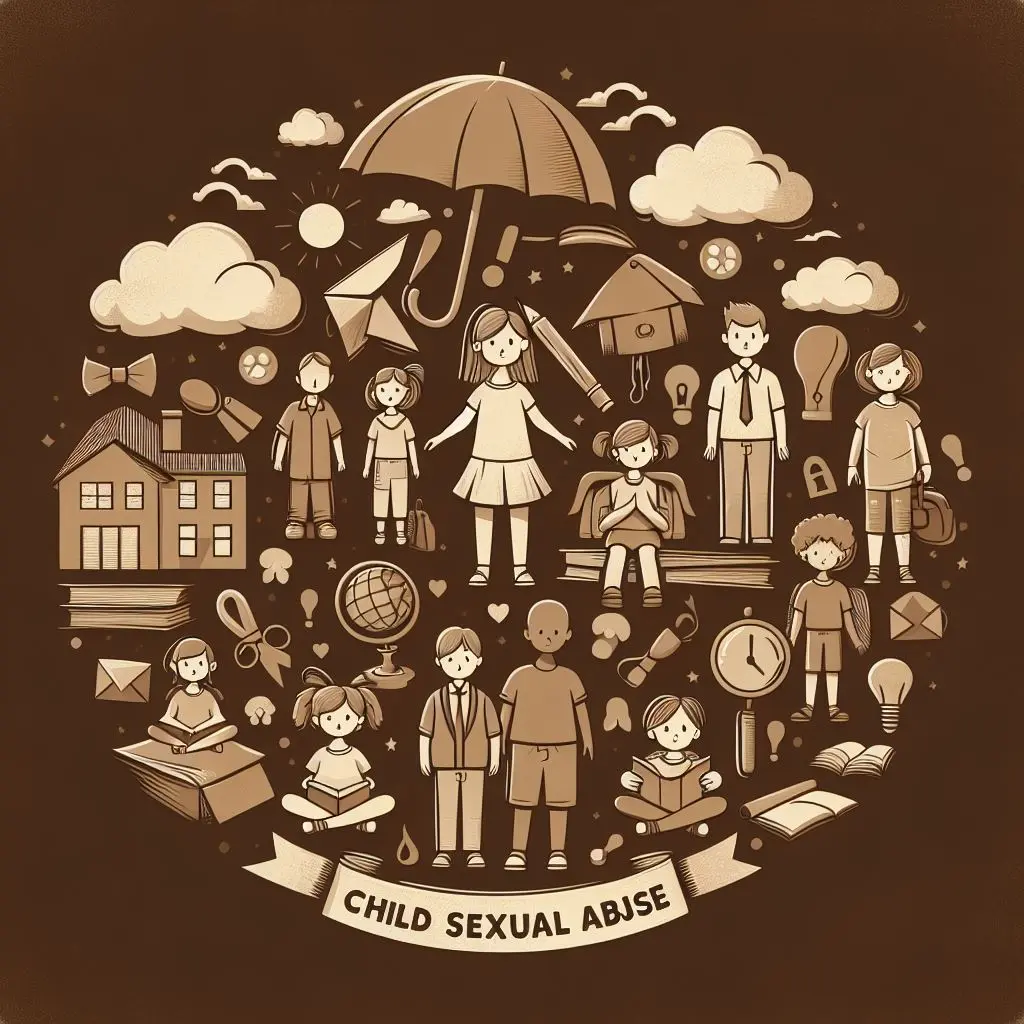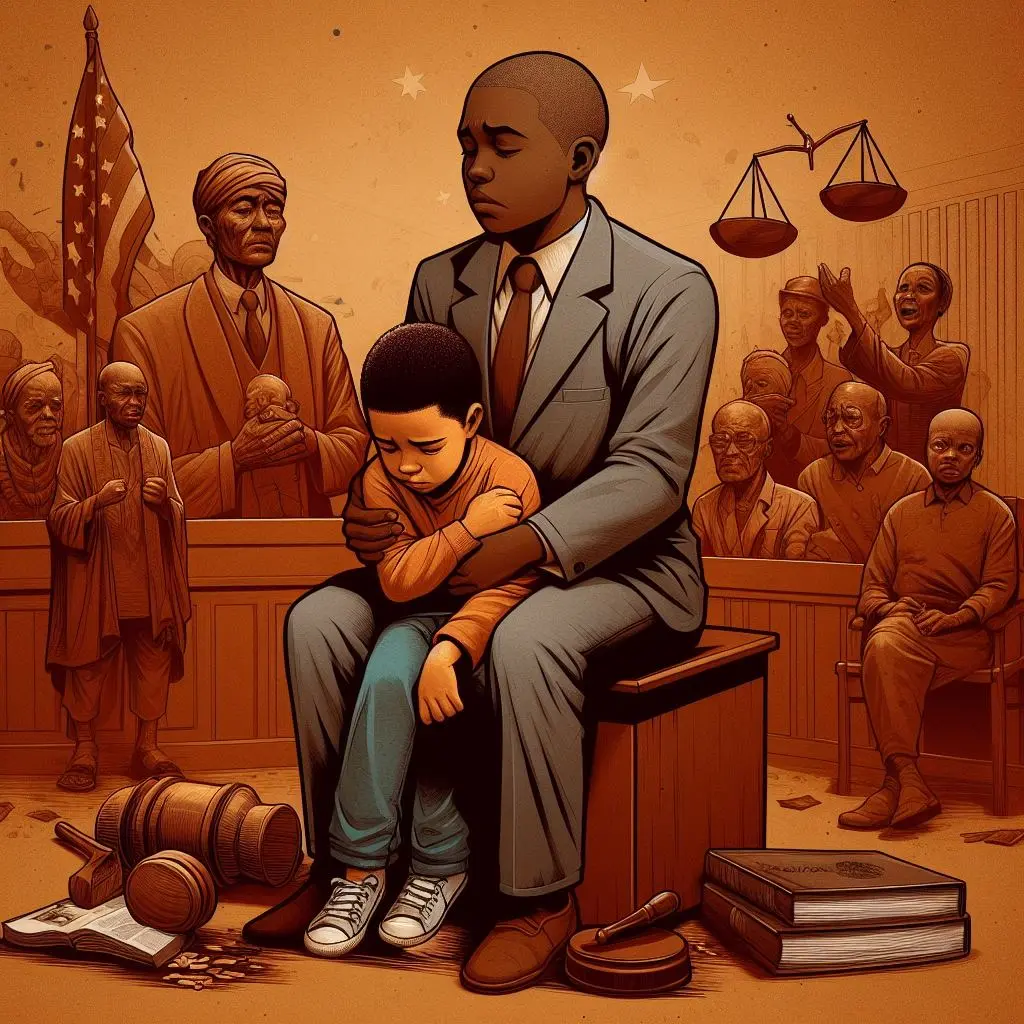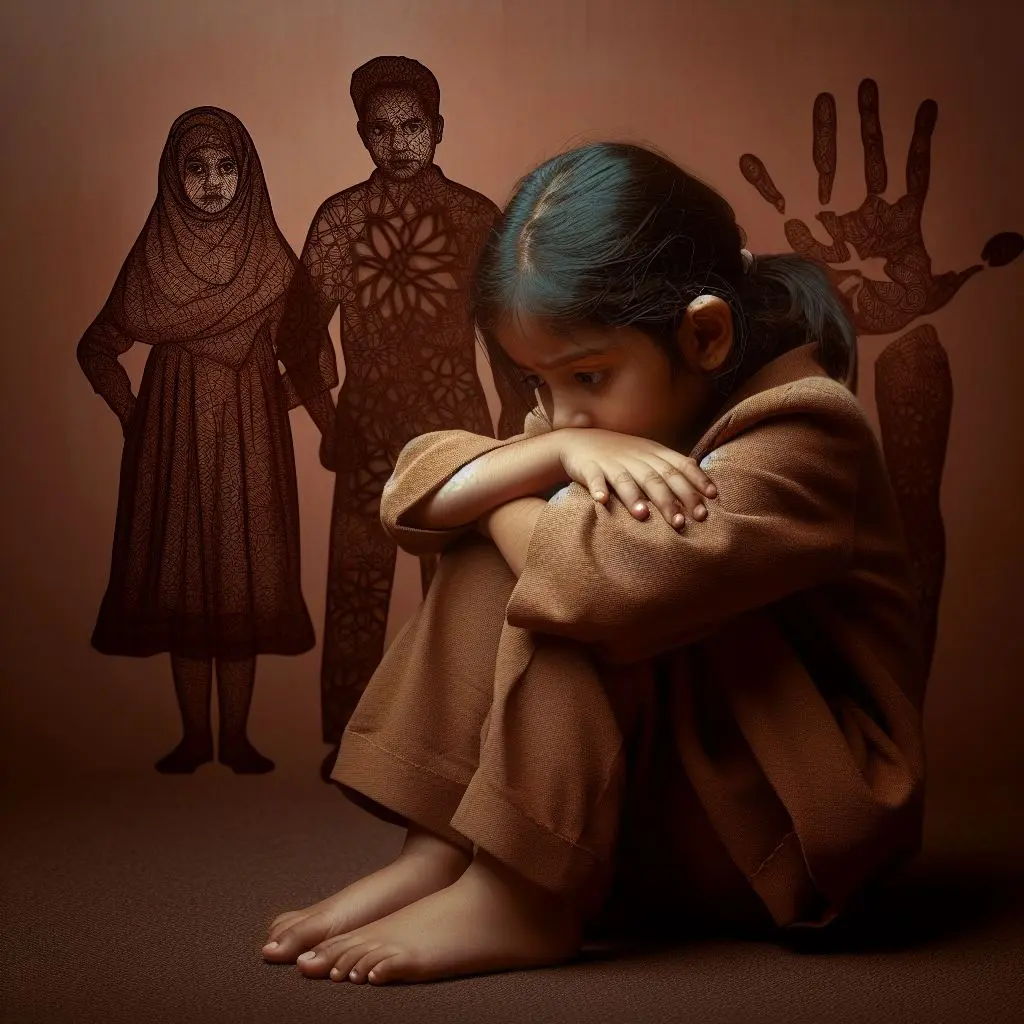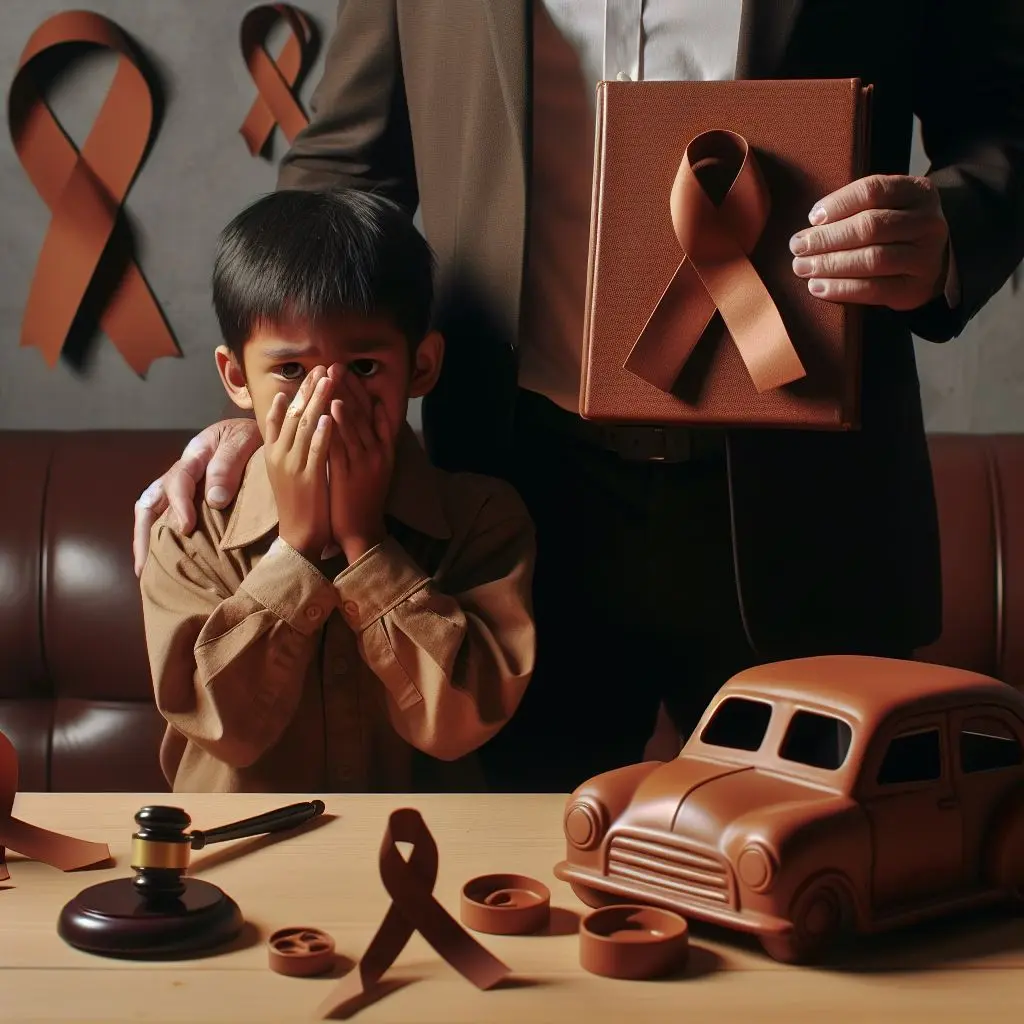
April 4,2024, News Headline, “A Rajasthan school debarred a 17-year-old minor from attending the class 12 examination because she was raped.”

The rape incident occurred on October 18, 2023. Meanwhile, the investigation and the POSCO Act proceedings are ongoing. A family member and 2 others gang-raped the minor. Later, the Rajasthan school subsequently asked her to take a leave for several days following the unfortunate event, preventing her from attending school.
On April 4, when she attempted to appear for the board exam, she was denied a seat because her presence would “spoil the atmosphere”. On her end, she filled out all the required forms and fees for the examination. She was clueless about the further steps when one of the teachers suggested contacting the “District Child Welfare Committee (CWC)”. Anjali Sharma, the president of the committee then approached Chief District Education Officer, Om Shankar Verma. After the inquiry, it was revealed that the Rajasthan school forcibly issued the Transfer Certificate to the minor.
Verma emphasized that such actions were ethically wrong, as they violated established norms and the inquiry report will be passed to the Director for further actions. On the other hand, Sharma claimed to put all their efforts into saving a year of the minor by facilitating her exams through the Board of Secondary Education Rajasthan, Ajmer.
Below are the statements passed by the readers of the news:
- “Such discrimination is not acceptable, I expect legal action against those who took such a decision.” -Abhi
- “What kind of regressive mentality is this? The license of the school should be revoked immediately. What kind of education will this Rajasthan school give to its students when instead of standing firm behind the student who has undergone such a trauma they are punishing her further?” -Chirag Chaudhary
- “A step was taken by a company rather than a school. They should give her moral support instead of making her suffering even worse. The government must close this shop immediately.” -Sanatani Patel
- “Close the school, shift students to another school, and put all involved in this dreadful episode behind bars with stringent provisions of IPC.” -Bhushan
- “This is a shocking misdeed by a member of the school management, and I hope that a more reasonable approach is taken so that the student, who is also a victim, does not have to endure further trauma that disrupts her studies. The board certainly has the authority to take action against the school management for their injustice toward the students.” -Suresh Kamath
Addressing the Incident: Rajasthan School’s Course of Action?

In light of distressing events prompts us to reflect on the fundamental values that should underpin our schools: inclusivity, compassion, justice, the right to education, ethical leadership, and accountability. Let’s look into each of these values that the Rajasthan school can incorporate and understand why they are essential for creating a supportive and nurturing learning environment for all students.
- Inclusive Atmosphere: The case shows why it’s important for schools to have a welcoming environment where every student feels safe and supported, regardless of their background or past experiences. Such environments are essential for students to thrive academically and emotionally, promoting a culture of acceptance and understanding within educational institutions.
- Compassionate Support: Schools should focus on offering caring support to students who have been through tough times, like the gang-rape survivor in Rajasthan. Instead of judging or excluding them, empathy and assistance are crucial. In doing so, schools can play a pivotal role in nurturing resilience and aiding students’ recovery from adversity, ensuring that they feel valued and empowered to overcome challenges and succeed in their educational journey.
- Equitable Treatment: Fair treatment and equal opportunities for all students are key. The Rajasthan school needed to ensure fairness for the survivor, making sure no student faces unfair treatment or disadvantage. Upholding these principles promotes a positive learning environment where every student can thrive and reach their full potential.
- Right to Education: Every student has the right to an education and this case underscores the importance of protecting the educational rights of all students without discrimination. It’s unjust that the survivor was denied the opportunity to take her board exams. This highlights the critical need for schools to ensure equal access to education for every student, regardless of their circumstances or past experiences.
- Ethical Leadership: Leaders in schools must set a good example by being honest and standing up for the rights of all students, especially those who are vulnerable. The failure of leadership in the Rajasthan school shows why this is so important. It highlights the need for school leaders to prioritise the well-being and rights of every student in their care, ensuring a safe and supportive learning environment for all.
- Accountability and Responsibility: The Rajasthan School need to take responsibility for their actions, especially when they harm students’ rights or dignity. It’s crucial to address such incidents properly and ensure that schools are held accountable for what they do. This not only promotes transparency and trust within the school community but also fosters a culture of respect and accountability, ultimately creating a safer and more inclusive learning environment for all students.
Bachpan Save The Innocence relentlessly works in child sexual abuse prevention. We provide various workshops in schools and other organizations or institutes to stakeholders including children, parents, teachers, youth, lawyers, police officials, etc.
Click here for information about our workshops.
Supporting the Survivor: helping her cope up with the trauma

- Know your rights: Understand the policies and regulations of the educational institution regarding accommodations for survivors of trauma. Familiarize yourself with any relevant laws or guidelines that protect survivors from discrimination or unfair treatment.
- Documentation: Keep records of any communication with the educational institution regarding the denial of entry into exams. This may include emails, letters, or notes from meetings. Documentation can be important if you need to advocate for yourself or seek further assistance.
- Know the options: If the educational institution refuses to provide accommodations or support, consider options such as filing a complaint with the institution, seeking assistance from a legal advocate, or reaching out to relevant regulatory bodies or organizations that support survivors’ rights.
- Educate others: Consider educating the educational institution about the needs of survivors and advocating for policy changes that support survivors of trauma. You can also raise awareness within the community about the issues faced by survivors and work towards creating a more supportive environment.
- Self-care: Take care of yourself during this challenging time. Practice self-care activities that help you feel grounded and supported, whether it’s engaging in hobbies, spending time with loved ones, or seeking professional help.
- Seek support: Reach out to trusted friends, family members, or support organizations for emotional support and guidance. Consider contacting a counselor or therapist who specializes in trauma to help cope with the situation.
Empowering Parents: A call of action in ensuring justice and creating safe spaces for survivors

- Understanding the Role of Parents: Parents play a pivotal role in shaping their children’s attitudes and behaviors towards sensitive issues such as sexual violence and discrimination. By fostering open communication and empathy within the family, parents can create a safe space where survivors feel empowered to speak out and seek justice.
- Educating Children: Parents play a vital role in educating their children about sex education, consent, boundaries, and healthy relationships from a young age. By teaching children to respect others’ boundaries and to communicate openly and respectfully, parents can help prevent instances of sexual violence and empower their children to advocate for themselves and others.
- Creating a Supportive Environment: Parents must actively advocate for survivors’ rights within educational institutions and the community at large. By challenging harmful stereotypes and stigma associated with sexual violence, parents can help create a supportive environment where survivors are valued and respected.
- Recognizing Signs of Trauma: Parents need to be vigilant and observant of any changes in their child’s behavior or emotional well-being. Signs of trauma may include withdrawal, anxiety, depression, and changes in sleep or eating patterns. By recognizing these signs early on, parents can provide timely support and intervention to help their child cope with the trauma of sexual violence.
- Encouraging Empathy and Understanding: Parents should strive to create a supportive and non-judgmental environment where survivors feel comfortable discussing their experiences and seeking help. It is crucial to listen actively, validate their feelings, and offer reassurance that they are not alone. By demonstrating empathy and understanding, parents can help survivors feel empowered and supported on their journey toward healing and recovery.
- Taking Action: Parents can take concrete steps to support survivors and promote justice and accountability. This may include engaging with school authorities to ensure that survivors are treated with dignity and provided with the necessary support services.
Click here to read “How Adults can fight for Child Sexual Abuse Prevention.
Upholding Justice: Empowering Society and Relatives to Stand Against Injustice

- Understanding the Impact: The appalling treatment of the survivor by the Rajasthan school authorities underscores the deep-rooted issues of victim-blaming and institutional apathy prevalent in our society. Every individual must recognize the impact of such actions on survivors and take a stand against such injustices.
- Supporting Survivors: A Call to Relatives: Relatives of survivors have a unique opportunity to provide unconditional support and empathy during challenging times. By offering a listening ear, emotional support, and practical assistance, relatives can help survivors navigate the complexities of the legal system and access the resources they need to heal and rebuild their lives.
- Building Solidarity: Society and relatives can come together to form support networks and alliances that amplify the voices of survivors and advocate for systemic change.
- Holding Institutions Accountable: By holding institutions accountable for their actions and demanding transparency and accountability, society and relatives can push for reforms that protect survivors’ rights.
- Creating Safe Spaces: Everyone must foster environments where survivors feel safe to speak out about their experiences without fear of judgment or retaliation.
Justice Without Bias: Government Actions And Legal Frameworks

Government’s Responsibilities:
- Enforcing Existing Laws: The government must ensure strict enforcement of existing laws, including the Protection of Children from Sexual Offences (POCSO) Act, to hold perpetrators accountable for their actions.
- Providing Legal Aid: Government-funded legal aid services should be readily available to survivors, ensuring they have access to competent legal representation and support throughout legal proceedings.
- Strengthening Child Protection Mechanisms: The government should invest in strengthening child protection mechanisms, including child welfare committees and special courts, to provide timely and effective support to survivors.
- Interagency Coordination: Government agencies, law enforcement, and civil society organizations must work together through coordinated efforts to address gaps in the system and ensure a holistic response to cases of sexual violence.
- Implementing Education Policies: Government education policies should prioritize the rights of survivors to education and ensure that no survivor is denied access to schooling or subjected to discrimination based on their experiences.
Legal Authorities’ Role:
- Conducting Impartial Investigations: Legal authorities must conduct thorough and impartial investigations into cases of sexual violence, ensuring that all evidence is gathered and perpetrators are brought to justice.
- Protecting Survivors’ Rights: Legal authorities have a duty to protect the rights of survivors throughout legal proceedings, including safeguarding their privacy, dignity, and confidentiality.
- Prosecuting Offenders: Legal authorities must prosecute offenders to the fullest extent of the law, sending a strong message that sexual violence will not be tolerated and perpetrators will be held accountable for their crimes.
- Community Engagement: Legal authorities should engage with communities to raise awareness about legal rights, reporting mechanisms, and support services available to survivors, fostering a culture of accountability and solidarity.
Providing Victim Support Services: Legal authorities should collaborate with support organizations to provide comprehensive victim support services, including counseling, medical assistance, and rehabilitation, to survivors and their families.
